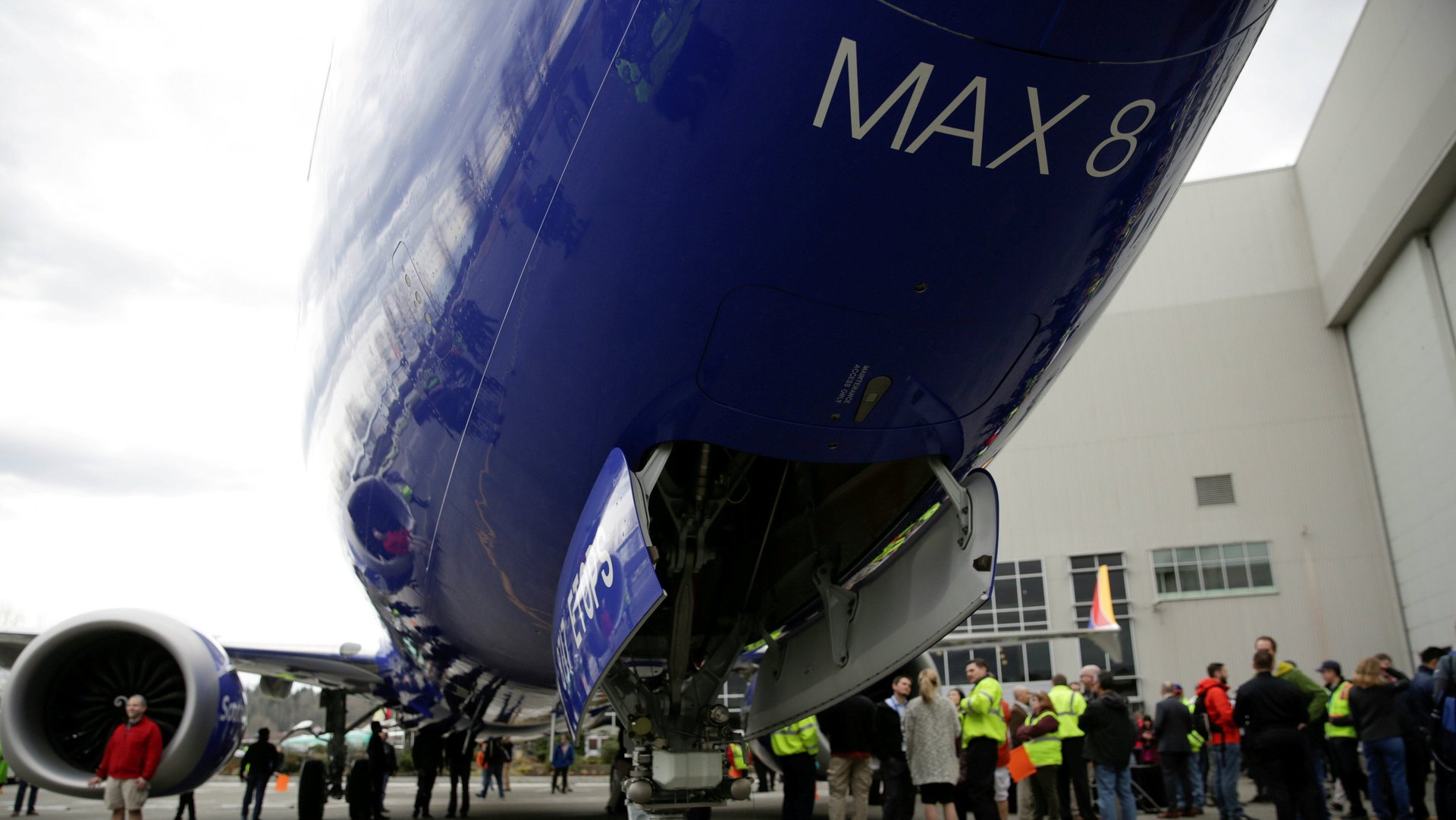After the Ethiopian Airlines crash, should the 737 Max be grounded worldwide?
On Sunday, an Ethiopian Airlines Boeing 737 Max 8 crashed, killing all 157 people on board. Coming just months after a Lion Air plane of the same Boeing model crashed within minutes of taking off from Jakarta, killing 189 people, the aircraft has now been grounded by two nations (China and Indonesia) and several airlines, including Ethiopian.


On Sunday, an Ethiopian Airlines Boeing 737 Max 8 crashed, killing all 157 people on board. Coming just months after a Lion Air plane of the same Boeing model crashed within minutes of taking off from Jakarta, killing 189 people, the aircraft has now been grounded by two nations (China and Indonesia) and several airlines, including Ethiopian.
A natural question follows: Should the rest of the world follow suit?
The Boeing 737 Max jet is a workhorse of the commercial aviation industry. There are 350 in operation (paywall), with 5,000 more on order, and airlines from Southwest Airlines to Norwegian Air to American Airlines rely on the model heavily for short- to medium-haul operations.
Two fatal crashes of the same aircraft in the space of five months is highly unusual. And while it is far too early to say whether Sunday’s crash was a result of the same anti-stall mechanism implicated in preliminary investigations into Lion Air’s October crash, there are some similarities. Both crashes happened shortly after takeoff, on newly delivered 737 Max 8s that been in operation for only a few months; and both pilots requested to turn back before the crash occurred.
While officials work to determine the cause, some are questioning whether a worldwide grounding is warranted. While airlines themselves can decide to ground the aircraft (as Cayman Airways, Royal Air Maroc, and Mongolian Airlines have reportedly done) a directive from national aviation authorities could also compel them to (as in China and Indonesia), as could a directive from the manufacturer, Boeing. In the wake of the Lion Air crash, the US’s aviation authority, the FAA, issued an air worthiness directive in November which instructed operators on how to train crew to deal with the fault.
Understandably, passengers are concerned, with comment sections and social media full of people wondering whether they should cancel or reschedule flights on the aircraft—or urging others to do so.
Richard Aboulafia, an aviation analyst at the Teal Group, an aerospace consulting company, told Quartz that a worldwide ban on the aircraft might be premature, “but the regulators and airlines might err on the side of caution, particularly since we could see a reaction by the public against flying on the plane.” He added that though a fleet-wide grounding would not be unprecedented—the DC-10 and Boeing 787 fleets have been grounded before—the “numbers would be unprecedented” in the event of a worldwide grounding of the 737 Max 8, due to the model’s prevalence in the industry. It would also wreak havoc on airline schedules and balance sheets.
The FAA told Quartz that it is “closely monitoring developments” and investigating the crash alongside the US National Transportation Safety Board and Ethiopian officials. As the FAA certified the American-made 737 Max, a decision from the agency to ground the plane would likely have international implications. Bloomberg noted that a “U.S.-ordered grounding of an entire model of aircraft is extremely rare and in the past has typically not occurred so soon during an investigation when few details are known.”
Southwest, which has 34 Max 8 planes, issued a statement saying it is in contact with Boeing and is following the investigation closely. For now, the airline says it remains “confident in the safety and airworthiness of our fleet of more than 750 Boeing aircraft.”
This post has been updated with information about groundings in Morocco and Mongolia.